Spirit animals: The cuddly creatures helping people
Low self confidence? Feed a llama. Feeling anxious? Fly with a ferret. A history of depression? A dalmation can help you. Animals are increasingly being used to heal the sick and lonely in schools, hospitals and prisons.
Lifestyle
Don't miss out on the headlines from Lifestyle. Followed categories will be added to My News.
From fluffy to feathered, hoofed to hairy, a menagerie of pigs, peacocks, alpacas and rabbits are increasingly being used to help heal and empower the sick and lonely, in schools, hospitals and even prisons.
Low self confidence? Feed a llama. Feeling anxious? Fly with a ferret. A history of depression? A dalmation might help you through your day.
And while mounting research is supporting theories animals can provide comfort with their presence and fulfil a social support function, generally they have no special training.
Unlike service animals — those well-trained companions that can assist the blind, or alert others to an owner’s medical issue such as a seizure — emotional support animals aren’t trained for any specific tasks.
The job of an emotional support animal is to simply be present for their owner’s wellbeing.
Dr James Collett, associate lecturer in psychology at RMIT University, says there are two main streams in which animals provide therapeutic value, otherwise known as “zooeyia”, the positive benefits to human health from interacting with animals.
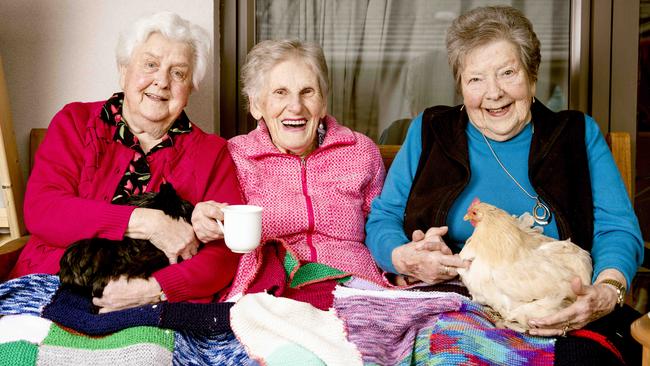
“The first way animals can help our mental health is through attachment,” Collett says.
“As we build a bond or engage in social bonds with an animal, our brains release more oxytocin, an emotional bonding hormone that can reduce stress and create positive mood.
“The same hormone is released when a parent and child build an emotional attachment, as when we bond with an animal.”
Collett says emotions between animals and humans have also been proven to synch up over time.
“Known as emotional contagion, human stress levels for example can synch up with their companion pet, significantly reducing them.”
The second way animals are proven to help humans is through “the simple act of observing”.
“Actively observing — or what we in psychology call mindfulness — can help build a greater sense of appreciation,” Collet says.
Just as sport or art can help develop self-identity, Collet says caring for animals can also have the same effect on a person’s sense of self.
“By caring, protecting or providing for the animal, humans develop a sense of mastery — not in a dominating way — but in a sense of ‘I can do this’, and having a purpose. People can derive and develop a great sense of identity and self worth, just as they might playing sport, or building a model plane, as they do building a relationship with a hamster or a dog.”
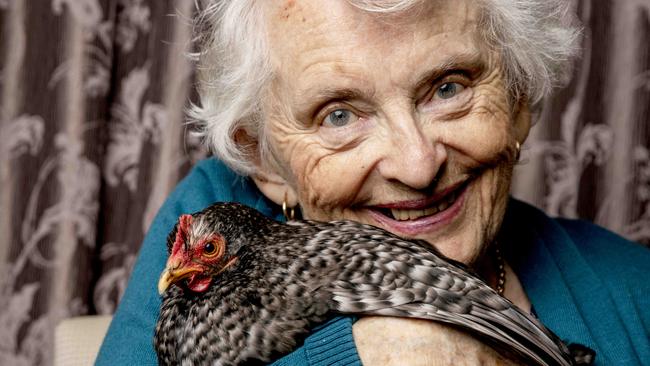
THE ZEN OF HENS
As three regular visitors make their way into the main living area of BlueCross Baradine aged care facility in Mooroolbark in Melbourne’s east, the faces of the residents light up with glee. Penny, Freckles and Henrietta have done their job.
It’s now eight months since the three healing hens retired into nursing home life where they now ensure the days of the patients get off to a cracking start.
Their new roles are thanks to the research of leisure and lifestyle co-ordinator Keirston Wheeldon, who came across reports that showed the positive effect hens can have on aged-care residents.
The program, known as Henpower, was originally set up by UK charity Equal Arts in 2011, with the aim of using hen-keeping to help combat feelings of social isolation and loneliness while reducing stress and anxiety and improve people’s wellbeing.
“There are numerous advantages,” Wheeldon says. “For our elderly patients, it has a significant impact on their empowerment and independence, and a sense that what they’re doing is valued and necessary.
“One of our residents has made it her job to coax them back into the henhouse when it’s time for bed, while another resident watches from the window instructing her. Taking care of the hens gives them a purpose and they each have their role.”
Resident Marjorie O’Brien even committed herself to waiting for chicks to hatch from their eggs last month, with nurses finally ushering her off to bed at 3am.
“For many of the residents, that mothering instinct kicks in,” Wheeldon says.
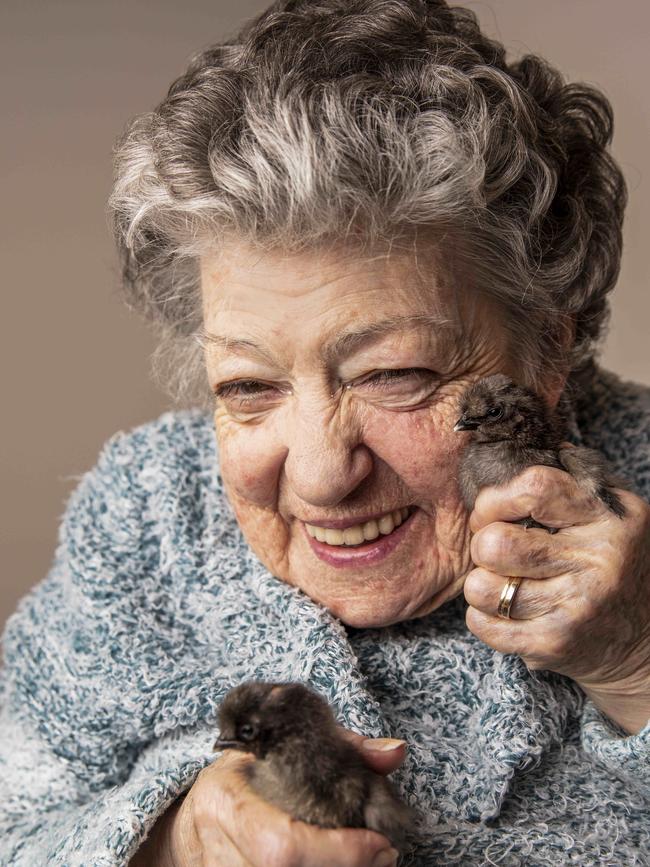
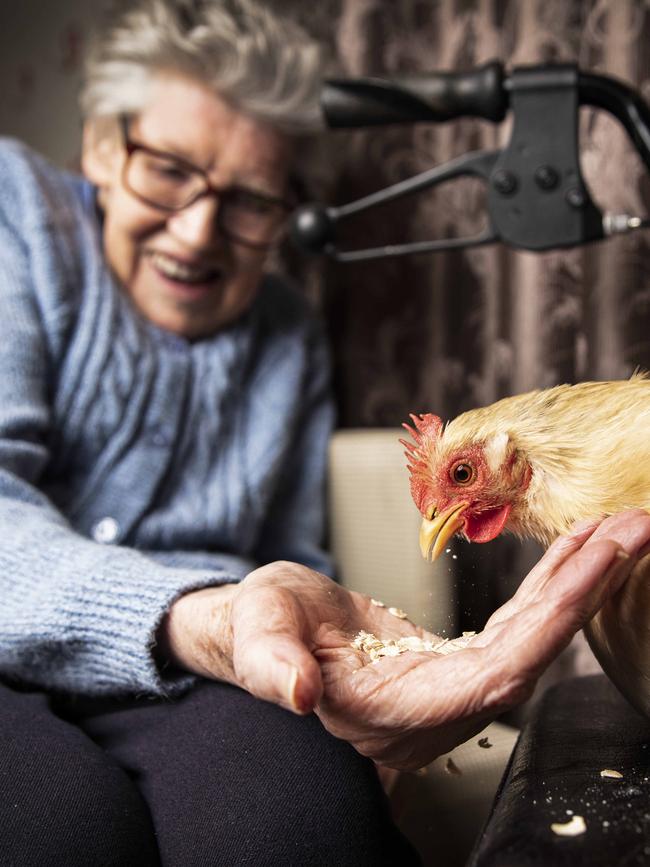
O’Brien says she adores watching the chicks hatch. “I love seeing them make the first crack of the egg and you get the first glimpse of their beak,” she says, eyes sparkling.
“We grew up with chickens. My brothers even refused to eat poultry on Christmas Day so poor mum had to make two lunches.”
Wheeldon says it’s common for the chickens to trigger memories for the residents.
“The nostalgia the hens bring is a huge part of the hen therapy because they provide them with an opportunity to open up about their past, and where they grew up, and that can help them build connections between the other residents,” she says, adding that fostering a close connection with the community and maintaining social interactions is also vital among the elderly.
Occupational therapist Minni Griggs says another benefit of the program is the incidental exercise which benefits the residents’ overall health and wellbeing.
“Every action, such as going to let the chicken out, is beneficial,” Griggs says, adding that residents who are no longer physically able to care for the hens, and even patients with advanced dementia and cognitive decline, can also have their spirits lifted by the hens.
“Even just the stroking action. That repetitive motion has a calming and soothing effect, particularly on our dementia patients.
“Patients in cognitive decline can be quite nonsensical with their language, but when
we walk in with a chicken, their whole
face just lights up. You don’t need words to understand what sort of an impact that is having on them.”
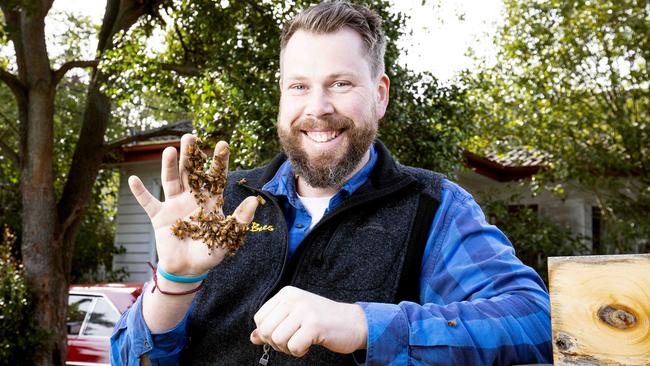
HOW TO BEE HAPPY
Conservationists have long known bees are vital to the wellbeing of the planet, but beekeeping is now becoming the buzzing new health trend we can all benefit from.
Ben Moore, founder of Ben’s Bees, who has been working with the winged insect for more than two decades, says enthusiasm for beekeeping is growing.
“You can see excitement on people’s faces as soon as they buy their bees,” Moore says.
“It’s the same thing you see when someone buys a new kitten or puppy.”
Among the people turning to Moore for advice in becoming bee keepers is a growing number of prison workers, police officers and law-enforcement personal.
“Many of them having heard about the benefits from a colleague or friend in the industry,” Moore says.
“Whether they’re dealing with stress, anxiety, depression or they have a need to disengage from the intensity of their jobs or the public, bees can improve mental wellbeing.”
Like an unassuming superhero of the garden, Moore says it’s the bees’ work ethic — such as collecting powdery pollen on their back legs — that can help heal those with mental illness or severe stress.
“Bees help people for the sheer fact that they are so labour intensive,” he says.
“There’s something about reflecting on how the bees connect and respond to their environment or just watching a bee go about its business that can take the stress out of daily life and can be a richly rewarding hobby to our mental health.
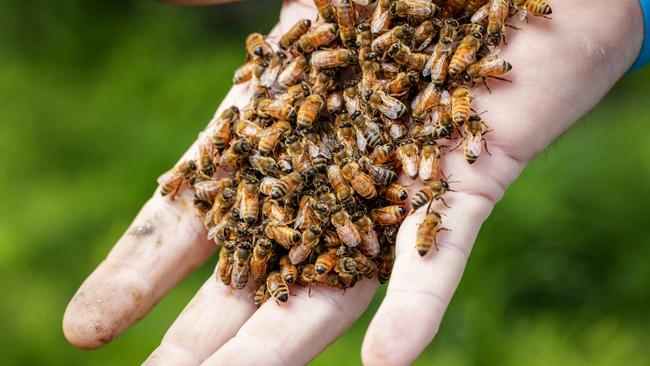
“Many philosophers have even stated that the humble honey bee is the perfect living organism — only contributing to nature and not damaging her in any way.”
Moore says he has seen first-hand the positive effects bees have had on owners.
“I’ve seen two people with severe depression and mental health concerns be rallied by beekeeping. There was a noticeable change even in the pitch of their voice.”
He says pilots are another industry harbouring aspiring hive hobbyists.
“I’ve had a number of pilots come to me, which might seem likely given the flying aspect, but it’s more to do with their environment.
“Pilots spend so much of their time either in the air, away from connection, or in the concrete jungle of an airport, so bees become a way for them to reconnect with nature.”
READ MORE:
UPDATE YOUR SPRING WARDROBE FOR LESS THAN $100
BYRON’S BEACHSIDE SOUL TRAMPLED BY INSTA TRAGICS
HOW SUCCESSFUL MELBOURNE CEO’S MADE IT TO THE TOP
Moore says nostalgia also plays a role in the healing element of the bees.
“There’s something about insects that makes you reflect on your childhood or your past and in a multicultural society, that might mean a second or third-generation Australian reconnecting with their Greek heritage where their great grandfather kept bees,” he says.
Moore says while it’s possible to turn urban spaces as small as a balcony into wildlife havens, those considering owning a hive should research first. “Getting among bees helps you understand them. If you’re not quite ready to own your own hive, I highly recommend going to a beekeeping course and joining a beekeeping club.
“Having a mentor to guide you through the depth of a hive for the first time is totally invaluable.”
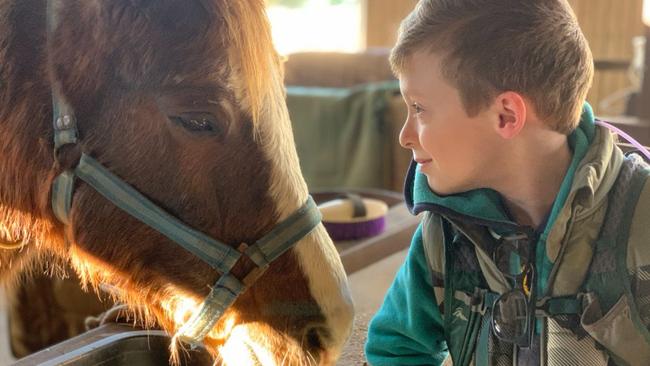
SADDLING UP TO CONFIDENCE
Next year will mark the 50th anniversary of Riding for the Disabled Association of Victoria (RDAV), a community-driven, not-for-profit that enables people with a disability of all ages and backgrounds to experience freedom and independence through equestrian activities.
The grassroots, volunteer-based organisation with 36 centres, 1100 riders, 1000 volunteers and 200 coaches statewide has helped people find the freedom to take the reins through structured riding classes, recreational horse riding, competitive riding, carriage driving, dressage and more.
State coaching co-ordinator Edwina Boase-Stratford says the program assists riders to develop skills and confidence. “There are therapeutic, physical and social benefits to taking part in equestrian activities,” she says.
“The activities enhance wellbeing from strengthening muscles, developing mobility, improving psychological wellbeing.”
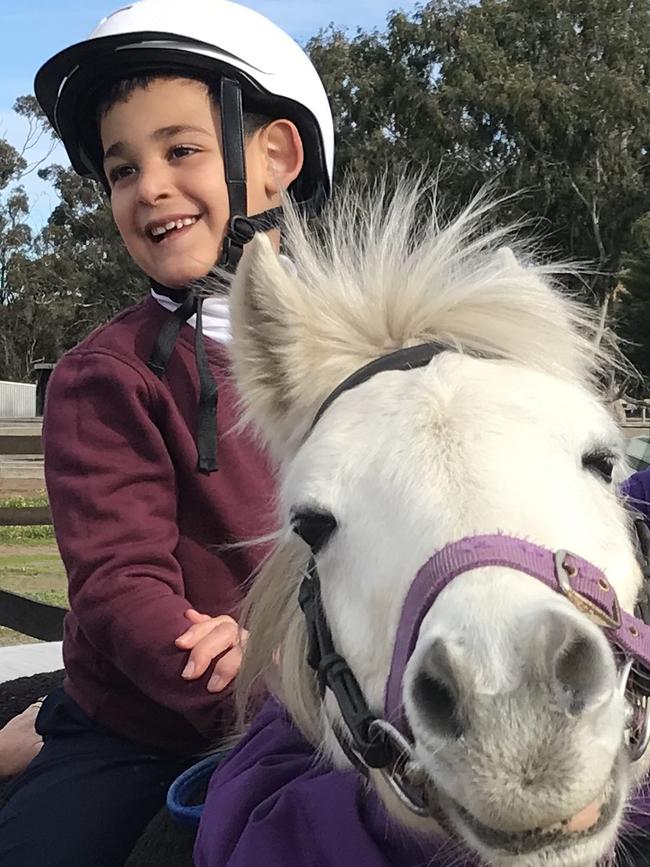
Boase-Stratford says children as young as three are able to take part in the activities.
“We offer everything from unmounted activities to develop confidence through to enjoying the freedom and exhilaration associated with riding and even pathways into the Special Olympics,” she says.
RDAV was founded in 1970 through the pioneering efforts of Michael Field, Wendy Maplestone and Betty Wood.
Kathryn Holden, a volunteer riding coach, says horses can have a profound effect on humans. “Horses respond to humans in a very uncomplicated way. There is no judgment or expectation,” Holden says.
“Horses can also reflect emotions and have an uncanny ability to know how to behave and make a connection with the rider.”
Holden says horses are beneficial to riders with physical or intellectual disabilities.
“For someone with limited physical abilities, it’s empowering to have a horse moving for you and giving you the freedom to not just be walking, but walking on a horse,” she says.
“We’ve also seen riders with autism who are not interacting with others begin to make eye contact with people, with riding the only difference to their daily routines.
“Numerous parents have described the difference in their child after riding as being ‘like their soul wakes up’.”
Boase-Stratford says the huge demand to take part in the program has resulted in a waiting list as RDAV looks for more horses and volunteers.
anna.byrne@news.com.au
